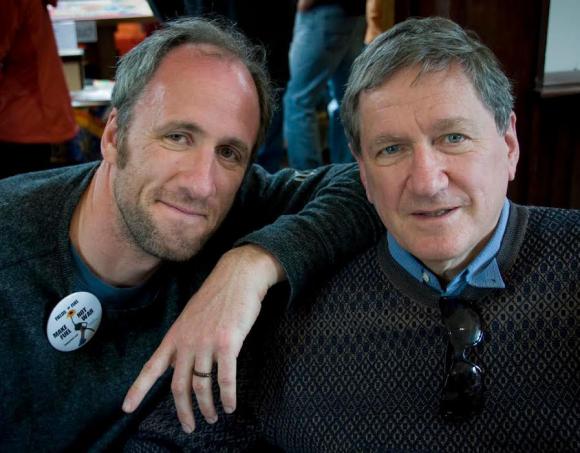PROVIDENCE, R.I. [Brown University] — The Watson Institute for International Studies will host a screening of the HBO documentary film The Diplomat, about the life and legacy of former U.S. Ambassador Richard C. Holbrooke, on Tuesday, April 28, 2015, at 5:30 p.m. The screening, which will take place in Salomon Center for Teaching, De Ciccio Family Auditorium, will be followed by a conversation with director David Holbrooke, Richard’s son; Marshall Sonenshine, executive producer; journalist David Rohde; and Richard Locke, director of the Watson Institute. The event is free and open to the public, but registration is required. A ticket and photo ID are required for entry.
The Diplomat
For five decades, Richard Holbrooke was among America’s most admired diplomats, playing central roles in major foreign policy arenas from Vietnam to Bosnia to Afghanistan. The story of his life’s work, told through the lens of history and the eye of his son, filmmaker David Holbrooke, is both a work of history and an investigation by his son into the remarkable career of his iconic father.
Shot on location from Washington to Europe, Vietnam, and Afghanistan, the film includes interviews with Henry Kissinger, Bill Clinton, Hillary Clinton, John Kerry, Kofi Annan, and many others. The film’s release in 2015 also marks the 20th anniversary of one of Holbrooke’s most notable achievements: the Dayton Peace Accords, which ended the Bosnian War.
Richard C. Holbrooke
Richard Holbrooke began his career as a foreign service officer in Vietnam and served as the director of the Peace Corps program in Morocco in 1970. During the Carter administration, he was named assistant secretary of state for East Asian and Pacific affairs and was instrumental in normalizing Sino-American relations. President Clinton appointed him first to serve as U.S. ambassador to Germany, then as assistant secretary of state for European and Canadian affairs, and finally as U.S. ambassador to the United Nations with Cabinet rank. He was widely credited as the chief architect of the 1995 Dayton peace agreement that ended the war in Bosnia. President Obama enlisted Holbrooke to serve as U.S. special representative to Afghanistan and Pakistan.
A 1962 graduate of Brown, Holbrooke served many roles at the University after his graduation. From 2007 until his most recent Presidential appointment, he served as professor-at-large, based in the Watson Institute for International Studies. He was a member of the Watson Institute’s Board of Overseers and received the 1996 William Rogers Award, the Brown Alumni Association’s highest honor. In 1997, the University recognized Holbrooke’s contributions with an honorary Doctor of Laws degree.
Holbrooke died in December 2010.
David Rohde
A 1990 graduate of Brown, David Rohde is an author and investigative journalist for Thomson Reuters. While a reporter for The Christian Science Monitor in 1995, he won the Pulitzer Prize for International Reporting for his coverage of the Srebrenica massacre. From 2002 to 2005, he was co-chief of The New York Times’ South Asia bureau, based in New Delhi, India. He shared a second Pulitzer Prize for the Times’ 2008 team coverage of Afghanistan and Pakistan.
While in Afghanistan in November 2008, Rohde and two Afghan colleagues were kidnapped by members of the Taliban. Moved into the tribal areas of neighboring Pakistan, he was held captive there for seven months before escaping with the help of one of his Afghan colleagues.
Rohde appears in The Diplomat to discuss the role Holbrooke played in securing his release after being arrested while reporting on the war in Bosnia and again trying to secure his release while in captivity in Pakistan.

